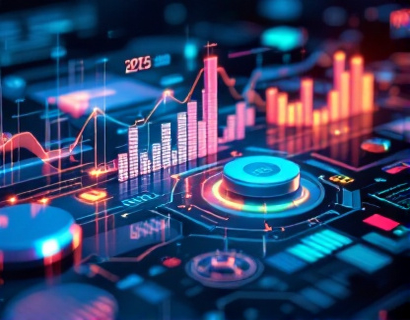AI-Driven Marketing Agents: Revolutionizing Business Growth Through Intelligent Automation
In the rapidly evolving landscape of digital marketing, businesses are constantly seeking innovative solutions to streamline their efforts, enhance customer engagement, and maximize return on investment. One of the most promising advancements in this domain is the emergence of AI-driven marketing agents. These intelligent systems leverage cutting-edge artificial intelligence technology to automate and optimize marketing strategies, allowing businesses to focus on their core activities while ensuring sustained growth and success.
The Role of AI in Modern Marketing
Artificial intelligence has transformed various industries, and marketing is no exception. AI-driven marketing agents are designed to understand complex data patterns, predict consumer behavior, and execute marketing tasks with precision and efficiency. Unlike traditional marketing tools, AI agents can adapt to changing market conditions, learn from past campaigns, and continuously improve their performance over time.
Key Benefits of AI-Driven Marketing Agents
1. Enhanced Efficiency: AI agents automate routine tasks such as data analysis, content creation, and social media management, freeing up valuable time for marketers to focus on strategic decision-making and creative endeavors.
2. Personalized Customer Engagement: By analyzing vast amounts of customer data, AI agents can create highly personalized marketing campaigns that resonate with individual preferences and behaviors, leading to higher engagement rates and customer loyalty.
3. Data-Driven Insights: AI agents provide deep insights into customer behavior, market trends, and campaign performance, enabling businesses to make informed decisions and optimize their marketing strategies effectively.
4. Scalability: As businesses grow, AI agents can scale their efforts seamlessly, handling increased volumes of data and marketing tasks without a drop in performance.
How AI-Driven Marketing Agents Work
AI-driven marketing agents operate through a combination of machine learning algorithms, natural language processing, and predictive analytics. Here’s a simplified overview of their functioning:
1. Data Collection: The agent gathers data from various sources, including social media, customer databases, and web analytics tools.
2. Data Analysis: Using machine learning algorithms, the agent analyzes the collected data to identify patterns, trends, and insights.
3. Strategy Development: Based on the analysis, the agent develops tailored marketing strategies, including content creation, ad targeting, and campaign scheduling.
4. Execution and Optimization: The agent executes the marketing strategies and continuously monitors their performance, making real-time adjustments to optimize results.
Case Studies: Success Stories of AI-Driven Marketing
Several businesses have already reaped the benefits of AI-driven marketing agents. Here are a few notable examples:
E-Commerce Giant Increases Online Sales
A major e-commerce company implemented an AI-driven marketing agent to enhance its online sales. The agent analyzed customer purchase history, browsing behavior, and social media interactions to create personalized product recommendations and targeted ads. As a result, the company saw a 30% increase in online sales within six months, with a significant improvement in customer retention rates.
Subscription Service Boosts Customer Engagement
A subscription-based service used an AI agent to personalize user experiences and improve engagement. The agent curated content and offers based on individual user preferences, leading to a 45% increase in active subscribers and a 20% reduction in churn rate.
Retail Brand Enhances In-Store Experience
A retail brand deployed an AI agent to optimize its in-store marketing efforts. The agent analyzed foot traffic patterns, customer preferences, and inventory levels to create dynamic in-store displays and promotional offers. This resulted in a 25% increase in in-store sales and a more engaging customer experience.
Challenges and Considerations
While AI-driven marketing agents offer numerous benefits, businesses should be aware of certain challenges and considerations:
1. Data Privacy and Security: Ensuring the privacy and security of customer data is paramount. Businesses must comply with regulations such as GDPR and implement robust data protection measures.
2. Integration with Existing Systems: Seamless integration with current marketing tools and platforms is crucial for the success of AI agents. Compatibility issues can hinder performance and require additional resources to resolve.
3. Human Oversight: While AI agents can automate many tasks, human oversight remains essential for strategic decision-making and creative input. A balance between automation and human intervention is key.
Future Trends in AI-Driven Marketing
The field of AI-driven marketing is rapidly evolving, with several trends shaping its future:
1. Increased Personalization: AI will continue to enhance personalization, using advanced techniques like natural language generation to create highly tailored content and experiences.
2. Voice Marketing: With the rise of voice assistants and smart speakers, AI-driven marketing agents will focus on optimizing voice-based marketing strategies.
3. Predictive Analytics: AI will become more adept at predicting consumer behavior and market trends, enabling businesses to stay ahead of the competition.
4. Ethical AI: As AI becomes more prevalent, ethical considerations will gain prominence, with a focus on transparent and fair AI practices.
Conclusion
AI-driven marketing agents represent a significant leap forward in marketing automation and optimization. By leveraging advanced AI technology, businesses can streamline their marketing efforts, enhance customer engagement, and achieve higher ROI. While there are challenges to consider, the benefits of AI-driven marketing are undeniable. As the technology continues to evolve, businesses that embrace AI-driven agents will be well-positioned to thrive in the competitive digital landscape.










































